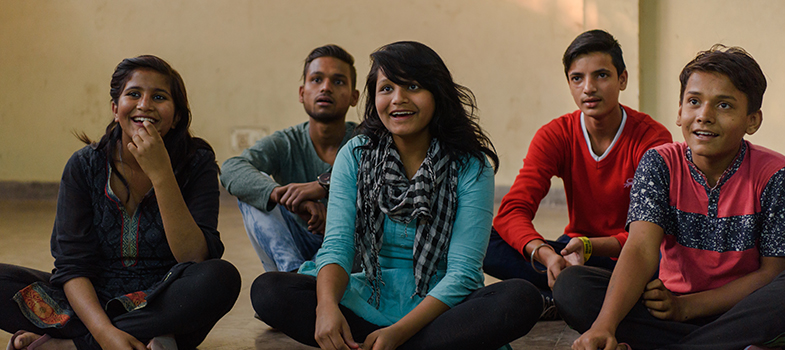3.1 Why is it difficult to talk about sexual pleasure?
At the end of Learning session 2 we saw that we are surrounded by images and texts from the media that speak to us about sexual pleasure. So it’s ironic that we often find it difficult to talk about sexual pleasure in our personal lives, let alone with the young people we communicate with.
But often we do find it difficult and it’s worth exploring why.
Activity 3.1: Why do we find it difficult to talk about sexual pleasure?
Part 1
In the circle on the left, write all the reasons you can think of why you might not currently talk to those closest to you (your partner or partners, your friends, your family) about your own sexual pleasure.
Now, in the circle on the right, write down all the reasons why you don’t currently talk to the young people you work with in your CSE work about sexual pleasure.
Are there any overlaps between the two, and if so, why might this be?
Discussion
One of the writing team tried this activity and, for her, the thoughts that overlapped were:
‘lack of courage’
‘lack of trust in the person I am communicating with’
‘don’t know the words to use’, ‘it’s personal’
‘feeling awkward’
‘uncertain how the community will respond’
You will probably have a different list. We all vary in how confident we feel communicating about issues where we are unsure of other people’s responses. Some people find it much easier to talk about sexual pleasure with a group of young people than their own partner.
Introduction
